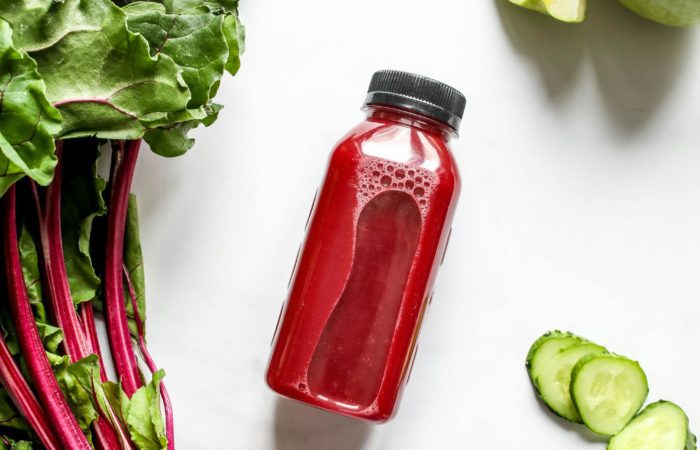
“Navratri Detox: A Holistic Approach to Cleansing and Healing Your Body”
Greetings to all on the occasion of Navratri!
If you’re not from India, you might be curious about what this festive is all about.
Navratri is a 9-day Hindu festival honoring the goddess Durga and her 9 forms. Each day, a different form of the goddess is celebrated, and this helps people connect with their inner power and divine feminine energy.
Navratri is also a festival with deep spiritual significance. This is a time of transformation in nature and within ourselves.
As we move from winter to spring, our bodies undergo a transition as well. It’s the perfect time to focus on detoxifying and rejuvenating our bodies, to prepare ourselves for the new season ahead.
Renew Yourself Inside Out
The word ‘detox’ has become a buzzword in recent years, but it’s not a new concept. In fact, many religions have been practicing detoxification for centuries. The main idea behind detoxification is to remove toxins from your body so that you can feel healthier and happier overall.
Toxins come from many different sources: food additives, pollution and chemicals in household products are just some examples of common sources of toxins in our environment. These toxins build up over time and can cause many diseases if left unchecked for too long.
If you want to learn how to detoxify your body during Navratri (or during spring time), here are some tips:
Detoxify Your Body Naturally with the Power of Yoga and Pranayama
These ancient practices have been shown to effectively eliminate toxins from your organs and tissues, promoting overall health and well-being. Through the gentle massage of internal organs, such as the liver, kidneys, and intestines, yoga can improve their function and aid in the body’s natural detoxification process.
In addition, pranayama – the practice of controlled breathing – helps purify the air we breathe and boosts oxygen supply to the body. For a complete practice, we recommend Angamardana, which not only supports detoxification but also strengthens muscles, improves flexibility, and enhances overall fitness. If you’re new to yoga, start with milder practices like Upa yoga and gradually work your way up to more challenging ones.
Use Ayurvedic Practices for Deep Cleanse
Abhyanga and Shirodhara are two Ayurvedic treatments that can be incredibly beneficial for detoxification.
If you are unable to avail these Ayurvedic treatments, you can try a simple version of Abhyanga at home. All you need to do is apply warm oil to your body and massage it gently. You can also enhance the effectiveness of this practice by following it with a steam bath, which helps open up pores and remove toxins from the skin.
For example, you can try massaging warm sesame oil onto your body and then taking a warm shower or using hot towels to create a steam bath-like effect.
Jala Neti: The Ayurvedic Solution for Clear Nasal Passages and Better Breathing
Jala Neti is an Ayurvedic practice of flushing the nasal passages with warm saline water. It helps to remove excess mucus, debris, and allergens, improving breathing and respiratory health.
Jala Neti can also be a natural method of detoxifying the nasal passages, improving overall detoxification and preventing respiratory infections and allergies. It is a safe and gentle alternative to chemical-based decongestants.
Herbal Remedies for Detoxification
It’s important to note that I am not a medical professional and it’s always best to consult with your healthcare provider before trying any herbal remedies.
However, some commonly used herbs for detoxification during Navratri include Triphala, a combination of three fruits – amalaki, bibhitaki, and haritaki.
Holy basil or Tulsi, neem leaves, and turmeric are also beneficial for cleansing the body. These herbs contain antioxidants and have properties that support the body’s natural detoxification processes, improving digestion, and boosting metabolism. Incorporating them into your routine can help you achieve a healthier and cleaner body.
Dietary Practices for Detoxification
Reduce your intake of processed food : Say goodbye to processed foods with preservatives and additives, I know it can be tough to give up your favorite dressings, mayonnaise, and sauces, but trust me, it’ll be worth it in the long run. Instead, why not try experimenting with fresh herbs, spices, and natural flavorings to create light and nutritious meals that will keep you energized throughout the day.
Your body will thank you! And you might thank me 😀.
Maximize Your Navratri Detox: Say Goodbye to Caffeine and Alcohol!
Did you know that why even habitual alcohol drinkers abstain from it during Navratri?
This religious practice has deep spiritual significance and goes hand-in-hand with avoiding caffeine during this time. Both substances have diuretic properties that can cause dehydration and loss of essential minerals, such as sodium and potassium, which are crucial for the proper functioning of organs like the heart.
Drink Up: Water is Your Detox Bestie
Stay hydrated by drinking plenty of water, and add a twist of flavor with lemon or cucumber slices.
Don’t sip constantly, drink when you feel thirsty but aim to drink a sufficient quantity to keep yourself hydrated and detoxified.

Detox with Delicious Seasonal Produce
Eating fresh, seasonal produce is an excellent way to help your body detox. Here are some of the best fruits and veggies to try:
Leafy greens: Packed with essential nutrients and antioxidants, kale, spinach, and other greens can help fight free radicals and keep your body healthy.
Berries: These colorful fruits are rich in anthocyanins, which protect against damage from UV rays and pollution. They’re also delicious!
Asparagus: This spring vegetable has diuretic properties to flush out excess water weight and keep you feeling full. Plus, it’s a tasty addition to any meal.
Artichokes: Low in calories and high in fiber, artichokes are loaded with vitamins C and K for glowing skin.
Beetroot: A rich source of vitamins and minerals, beetroot supports liver health and helps the body eliminate toxins more efficiently.
Carrots: Rich in antioxidants and vitamin A, carrots can help protect against free radical damage and support liver function.
And remember, it’s always best to eat local produce whenever possible to support your community and reduce your carbon footprint.
From Indulgence to Detox: My Navratri Fasting Journey
Let me tell you about my Navratri fasting experience from way back. I was a young and naive soul, thinking that fasting meant feasting on all the vrat delicacies out there! And let me tell you, I indulged in them like there was no tomorrow – tikkis, puris, vrat bhujia, you name it! Oh, and don’t even get me started on the Navratra thalis at Haldiram’s. My stomach was in heaven, but little did I know that my poor body was getting tortured.

It wasn’t until much later that I learned the true meaning of fasting during Navratri. Apparently, it’s not just a religious practice, but also a way to give your body a break from all the junk we usually consume. And while I was overindulging in all the heavy vrat snacks, I was missing out on the lighter, nourishing options like fruits, smoothies, and nuts. Who knew?!
So, if you’re planning on fasting during Navratri, take my advice and go for the healthier options. And if you’re feeling brave, why not try fasting completely and give your body a chance to detoxify and reset.
Embrace the Festive Spirit of Navratri
Navratri is more than just a festival – it’s a time for spiritual growth, self-improvement, and connecting with the divine. Whether you decide to fast or not, it’s a fantastic opportunity to celebrate life with devotion and energy.
It’s a time to reflect on our inner selves and emerge stronger, both physically and mentally. So, let’s embrace this festive season and make the most of this time for our well-being.
What are your favorite aspects of Navratri?
Do you have any special memories associated with this festival? Perhaps, like me, you have fond memories of feasting in the name of fasting?
Let us know in the comments below!






Thank you for a detailed post ❤️
Excellent write up. Keep it up.
If fasting, then before one breaks the fast, freshen up and sit straight, with back fully straight and in sukh asan or padma asan and meditate. Detach oneself totally, relax breathing and empty the mind. Even for just 5 minutes. It will life changing experience. Best wishes.
You’re welcome! Thank you for taking the time to read this.
I fast twice a year during Navaratri,and after nine days,I eat two meals on the tenth day.But I find it difficult to eat more food as my body has become used to eating less.Sometimes,I wonder if we can train our body to do more with less food if we practice yoga and breathing techniques regularly.Being mindful of what we eat can have a significant impact on our physical and mental health.Thanks a lot for sharing this helpful blog.It has helped me understand the importance of detoxifying the body.
Thank you so much for taking the time to read my blog and leaving such an insightful comment.
It’s great to hear that you fast during Navaratri and are mindful of what you eat. Yes Sarita, it is very much possible to reduce the intake of food if you do yoga and eat consiously.
You know you gave me a great idea for next blog,
Happy Navratri and Happy fasting!
Thank you for sharing details about Chaitra Navratri. As I am from southern India, I knew only about Sharad Navratri.
Thank you for taking the time to read my blog and leaving a comment.
I’m glad that I could provide you with some new information about Chaitra Navratri, which is celebrated in the spring season.
It’s interesting to note that Navratri is celebrated differently in various parts of India, and Sharad Navratri, which is celebrated in the autumn season, is more popular.
I hope you have a happy and joyous Navratri season!
Very educational! Thanks for sharing this.
I hope you have a happy and healthy Navratri season!
Nice detailed post. Being a regular Angamardana practioner I completely agree on how it helps in bringing the body in a complete balance
We feel so happy and proud to know that you are continuing Angamardana practice everyday, its not a small thing. So proud of you and Happy Navratri
Love the post! It’s time for some carrot and beetroot salad haha. Let us know your favourite recipes! 😊
Thank you Janice, glad to know that you have liked the post. My favourite salad is betroot, mango & coconut salad. In cooked food, I love Masala Dosa the most
Informative blog. It covers all the simple and easy practices to detoxify the body in this navratri season. I got to why fasting is important and how yoga can help naturally detoxify the body. Highly recommend to the readers to go through the blog once to make the best out of this Navratri season.
I’m happy to hear that you found the information helpful. Yes please give it a try. I am sure you will enjoy many benifits later.
Excellent write up. Keep it up.
If fasting, then before one breaks the fast, freshen up and sit straight, with back fully straight and in sukh asan or padma asan and meditate. Detach oneself totally, relax breathing and empty the mind. Even for just 5 minutes. It will life changing experience. Best wishes.
Thank you so much.
Amazing we will give it a try definitely. Thank you so much for sharing this unique practice with us all. Appreciate it
Thank you so much for such a wonderfully illustrated and magnificently presented blog. I’ve never kept a fast for navratri but after reading it i’d definitely like to try.
Thank you so much for your kind words and for taking the time to read my blog post. I’m glad to hear that you found it helpful and inspiring, and I hope that you have a wonderful experience if you decide to try fasting during Navratri. If you cannot fast, even that is okay this time. But make sure you at least commit not to eating junk or processed food. Happy Navratri!!
Very comprehensive! so may options presented. Thank you!
Thank you and Wishing you a happy and healthy Navratri!
Happy Navratri to all.
Insightful post would love to see more of these kind of post in near future.
I’m glad you found the post insightful and informative.
If you have any particular topics or suggestions for future blogs, always feel free to let me know.
Happy Navratri!
Very insightful! Learnt many new things!! Thanks for sharing this :).
I’m delighted to know that you found the blog post valuable
Great insight on many topics and inspired me to look at Navratri fasting in a different way! Thx for sharing n Happy Navratri 🙏🎉🙏
Thank you so much for your kind words!
I’m thrilled to hear that my insights on Navratri were helpful.
Wishing you a very Happy Navratri as well! May this auspicious occasion bring you happiness, prosperity, and good health.
Appreciate your efforts in putting things all this information together – such an insightful and inspirational post! Thanks for sharing 🙏
Thank you for taking the time to read the post.I’m glad that you found the post insightful and inspirational.
It was my pleasure to share this with you all.
Very well Written & informative. This has motivated me to start the Fasting in a more positive way. Thank you so much for giving us so many good options. Really appreciate your Time & Energy to write this for us. 🙏
Thank you for your kind words! I’m glad to hear that you found the information informative and that it has motivated you in a positive way.
Quite Insightful. Thanks for sharing such details. Have got to know the another side of Fasting.
You’re welcome! I’m glad you found the information insightful. Happy Navratri!
Thanks for putting this together. A lot of suggestion here are worth to try. Just have a question, this 9-day fasting means only eat after sunset?
Thank you Zhen, I am beyond delighted to know that you liked the post.
So eat your main meal(or only meal of the day if possible), around sunset or before sunset.
According to Ayurveda, our digestive system is at its most efficient during the day when the sun is shining.
As the sun sets, our digestive fires start to diminish, making it challenging for our body to break down food effectively.
Therefore, even in general it is recommended to have your dinner around sunset or before sunset when the sun is still up in the sky.
By doing so, you will help your body digest the food efficiently and avoid any potential digestive discomfort.
Very informative and educational. Didn’t know these prospects about navratri. Thanks di for this well-explained post ☺️
Thank you so much. To get a compliment from one of the best writer I know, means a lot. Happy Navratri!
Very informative. I never tried navratri fasting after reading your blog I am motivated. Will definitely try. Keep posting its very motivational.🙏
Thank you so much. It brings me so pleasure to find out that you found some value in the blog. Yes next time, I would write in advance so that everyone who wants to try, gets a reminder for observing Navratri fast. Happy Navratri!
Very educational information, Thank you for sharing!
Thank you so much Gurpreet for taking out time to read this.
Happy Navratri!
I always loved this festival. The feeling of transitioning in season and how one should transition in life. As someone who used to fast but stopped, reading this made me want to fast again knowing that there are more options than just potatoes.
It’s great to hear that you enjoy this festival and its significance.
Yes, there are indeed many options for fasting beyond potatoes. Hahaaa
You can eat a large variety of salads, smoothies, nuts etc.
Do let me know if you want me to share a few recipees with you.
Thank you for the post, packed with educational goodies and empowering message.
I am very happy for connecting to and learning from people like you, who is generously sharing wisdom and practices for human wellbeing and spiritual evolution.
Fasting can be one type of sadhanas. If my understanding is correct.
Thank you for your kind words Helena, but I have to say that I am equally or perhaps even more thrilled to connect with you. It’s always a joy to meet like-minded people who share an interest in personal growth.
You are absolutely right, Fasting has been regarded as a form of sadhana in many traditions.
It can be used to purify the body and mind, develop discipline and self-control.
However, it is important to approach fasting with right intention, awareness, and respect for our body’s needs. By doing so, we can reap the benefits of fasting while avoiding any harm that may arise from improper or excessive fasting.
Well written kritika beta ji.you have explained everything very clearly and also in detail.your words FEASTING in name of FASTING are really meaningful and advisable specially for us Indians🙂keep it up👍
Thank you so much mam for your kind words, Your words of encouragement means a lot to me.
Yes mam I myself have feasted a lot on the name of fasting, which defeats the purpose of the fast altogether.
So I shared it all
What a wonderful post! Thank you 🙂
Thank you Vishesh
Happy Navratri
Amazing read, I loved how it was a quick read and straight to the point. It’s great how this information is available for free, and how simple some of these aspects are. Will definitely try to incorporate atleast some of these into my life, if not all.
Thank you!!🌄
Thank you Sanjeevan for reading my blog post. I am delighted to know that you found some value and will incorporate a few things.
Definitely food for thought! Detox is so essential! And this article really made me think about how detox can come in so many ways! Definitely will implement these tips! Thanks kritika!
Thank you so much for your kind words Kaushik and also for taking out time to read my blog post!
I’m glad to hear that my article on detox resonated with you and gave you some useful insights.